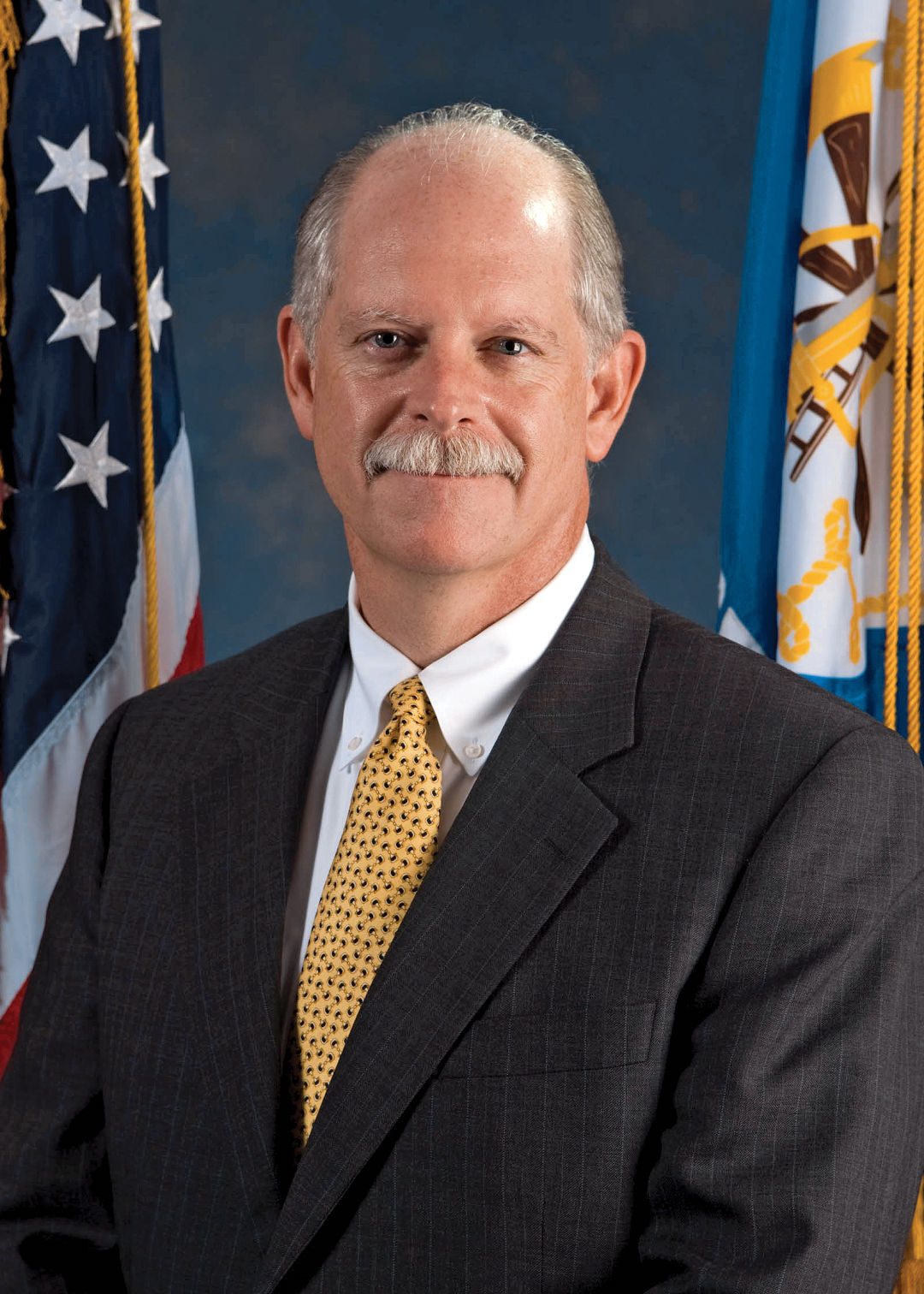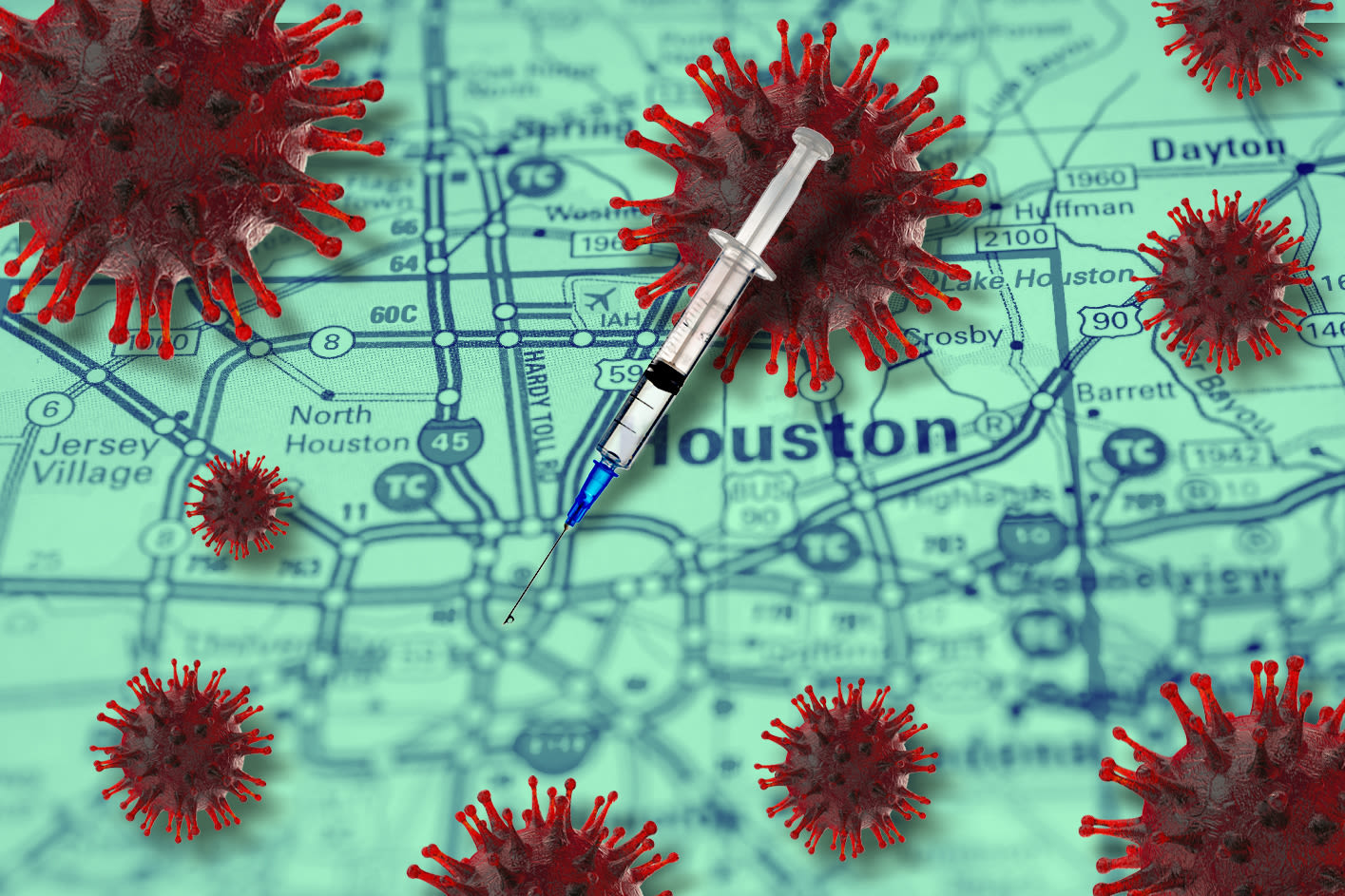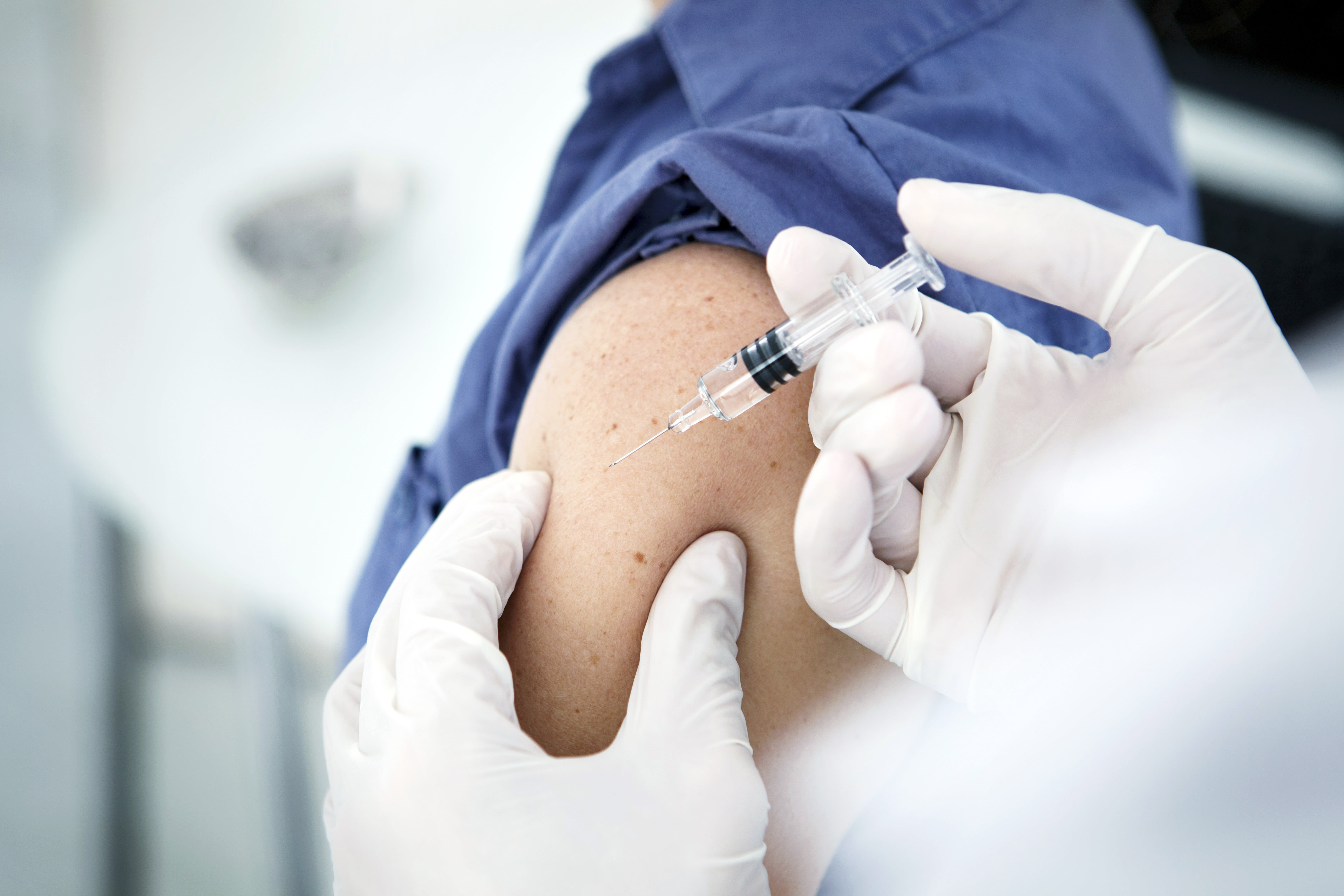The Public Face of Houston's Fight Against Covid-19

Dr. David Persse has been the city health authority for more than a decade.
IF YOU’RE SEEING DR. DAVID PERSSE ON TV, something bad has happened. As the Houston Health Department’s health authority, he usually crops up on the news only during a crisis—think hurricanes and, well, outbreaks of infectious diseases—to provide advice and leadership.
Because of the current pandemic, we’ve been seeing a lot of him lately. He’s appeared weekly and (more disconcertingly) daily at the city’s Covid-19 press conferences for months now. His frank demeanor, colorful analogies, and bushy white mustache have become irrevocably linked with Houston’s virus response, and frankly somewhat calming. He’s kind of like our very own Dr. Anthony Fauci—a comparison Persse doesn’t necessarily think about.
“I’ve got a job to do,” he says, shrugging off the analogy. “Which is to be as informed as possible, digest that information, and give the most sound advice that I can, which is the advice that I would give my family.”
All he’s focused on during his own appearances is being sincere, transparent, and, most important, factual, which is nothing he wouldn’t have done pre-pandemic. Otherwise he’s just trying to get through this global health crisis, the same as we all are, and no, he never expected to lead Houston through a pandemic when he took on the health authority role 16 years ago. But it is something he’s trained for most of his life.
Growing up in Buffalo, New York, Persse was planning on being a journalist, but while working his after-school job mopping floors and stocking shelves in the ER of the local hospital, he was fascinated with the guys in the ambulances peeling in, sirens blaring at all hours with patients in tow. So he became an EMT and he was driving ambulances before he finished high school, and was a paramedic by college.
By the time he was close to graduating, Persse already knew his true calling was to be a doctor. While working as a paramedic in 1981, he’d been on call when a particularly nasty blizzard rolled into upstate New York. The experience changed him. “To anybody in Western New York who was alive then, we all have vivid memories,” he recalls. “It was a really terrible blizzard. It lasted days, and lots of people died, and that was my first disaster.”
Unfortunately his communications degree wasn’t going to be much help there. “I basically had to go back and do most of college all over again because I had none of the sciences,” he says now.
Thus Persse enrolled in a post-baccalaureate pre-med program at Columbia University, followed by medical school at Georgetown, a Harbor-UCLA residency, and then an emergency medicine fellowship that brought him to Baylor College of Medicine and Houston. After a stint in LA, he came back here for good in 1996. Within a few years he was appointed head of the Houston Fire Department’s EMS, a role he still serves in today, and in 2004 his background in emergency medicine led Persse to become the city’s health authority, the position he’s held ever since.
By then he’d seen years of trauma in ERs. He dealt with the fallout from the Rodney King Riots in 1992 as Los Angeles County’s assistant medical director. In Houston he learned to help elected officials navigate storms galore, including hurricanes Katrina, Rita, and Harvey. But the Covid-19 pandemic has been different.
For one thing, our response has been affected by politics, unlike with most weather-related disasters. "Hurricanes are about everybody pulling up their boots, putting their raincoats on, and getting to work, getting it done,” he says. “This is a much slower-evolving disaster—a public health crisis—and unfortunately it has also allowed for it to become politicized, and that’s just a shame.”
And rather than being engulfed by on-the-ground medical care, Persse spends most of his time in virtual meetings, convincing groups to work together and coordinating logistical problems like getting enough testing. Twice a week Persse, the mayor’s office, and Harris County Public Health officials meet with Texas Medical Center leadership to go over data and strategize how to help each other. He participates in Mayor Sylvester Turner’s press conferences on Mondays and Wednesdays, if not more often. And in between all that, Persse also meets with regional health authorities twice a week to discuss recent medical news—“To keep all of us sharp on what the latest research is showing”—and rolls with the punches thrown by an ever-evolving crisis. “It’s just dealing with whatever the current thing is,” he says.
Most days Persse says he’s lucky enough to get home by 6 or 7 p.m. in the evening, but the pandemic’s slow burn does keep him answering emails until almost midnight. He also worries about the folks who don’t understand contact tracing and the need to self-isolate to prevent the virus’s spread, even if they’re asymptomatic. That, he says, “is where the rubber meets the road.” And he’s concerned that come fall, the flu will only exacerbate Covid-19, especially if someone contracts both viruses at the same time, saying: “I can’t imagine it’s anything but much, much worse.”
Despite his worries, Persse is a man with a mission. He says that to fight the virus, the community has to work together—albeit from a distance—for the sake of the common good, as Houstonians have done so often before during disasters, such as 2001’s Tropical Storm Allison. “I know that sounds terribly corny,” he says. “But it’s the truth.”




